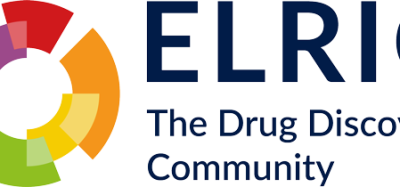Precision medicine beyond oncology
Posted: 2 December 2020 | Alessia Deglincerti (Bionest), Rachel Laing (Bionest) | No comments yet
The field of oncology has successfully applied precision medicine approaches to diagnosis and treatment. Success has been driven by a growing understanding of the underlying biology of cancer; the emergence of innovative tools and technologies for biomarker identification and detection; and considerable advocacy by patients, physicians and policymakers that has helped drive further research and abundant funding. Drug and diagnostic developers are now exploring precision approaches in other areas of medicine, including neuroscience, immunology and women’s health. Given the unique challenges these domains pose, how best can the lessons learned from oncology be applied to these fields?


PRECISION MEDICINE aims to provide a highly specific diagnosis that helps select the safest and most effective therapy for a given individual, rather than relying on the one-size-fits-all approach that has characterised many treatment regimens in the past. Central to this approach is the understanding that patients vary in terms of their gene and protein expression, environmental influences and lifestyle – all of which may affect disease manifestation, as well as the patient’s response to a particular drug or therapy. Besides providing better outcomes, precision medicine approaches help generate data that can support pricing and reimbursement decisions by demonstrating clearly to payers and policy makers, such as the Institute for Clinical and Economic Review (ICER) in the US and the National Institute for Health and Care Excellence (NICE) in the UK, that a particular drug works well for a defined set of patients.
Precision approaches have seen tremendous success in the field of oncology, where molecular diagnostics and targeted treatments have enabled significant breakthroughs in patient survival for previously untreatable cancers. The 1998 approval of Herceptin (trastuzumab) for HER2-positive breast cancer became the first oncology drug to be approved for a biomarker population. This was followed in 2001 by Gleevec (imatinib mesylate), which was discovered to inhibit the ABL tyrosine kinase gene in chronic myeloid leukaemia (CML) cells while leaving healthy cells unaffected. Since then, survival rates have soared for this previously deadly cancer; over 83 percent of CML patients receiving Gleevec have survived at least 10 years with daily treatment, while experiencing few, generally mild side-effects. A growing number of precision oncology medicines have today either entered the market or are in advanced stages of clinical development, ranging from monoclonal antibodies (mAbs) and small molecule drugs to targeted immunotherapies and CAR T-cell-based treatments.
So, what are the key factors that have enabled the success of precision medicine in oncology?
1) A growing understanding of cancer biology
Over the past 20 years, the field of cancer biology has made strides in the understanding of what drives tumour development and growth. Large-scale research programmes such as the Cancer Genome Atlas and various efforts spurred by the Obama Administration’s Precision Medicine Initiative and “Moonshot” to eliminate cancer “as we know it” have benefitted from emerging genomic and proteomic technologies, as well as the concerted action that has been directed to understanding cancer at the molecular level. New levels of detail about tumour biology, the tumour microenvironment and immune interactions are now emerging from the use of these and other research technologies such as metabolomics. These developments continue to provide a strong base for identifying new biomarkers and druggable targets.
2) Innovative tools and technologies


3) Patient and medical advocacy
A third critical factor in advancing precision medicine in oncology has been the public demand for improved cancer care and treatment. Governmental and non-profit groups have launched multiple precision medicine initiatives in oncology, raising billions of dollars aimed at generating new knowledge, tools and technology. Efforts to improve patient access to such advances have also been critical to increasing use of precision medicine approaches at the community level, helping to ensure that it does not remain solely the province of a few top hospitals and research centres.
Extending precision approaches to other fields of medicine
There is clear acknowledgement by experts that the promise of precision medicine can and should be applied to other therapeutic areas. However, many fields of medicine offer unique challenges to applying precision approaches, given the distinctive complexities and characteristics of the diseases involved.
Immunology
The biology of the immune system and its effects on disease are extremely intricate. It is subject to dynamically changing cellular states and interactions, as well as a variety of factors that can influence an immune response, including environmental and microbiome-related impacts. Molecular and clinical heterogeneity is also common to many of the diseases falling into this category, which includes autoimmune and inflammatory conditions that can affect different organ systems. Identifying targets and biomarkers that can help advance precision medicine for immunologic illnesses will likely require a systems biology approach that goes beyond simple genomic/proteomic measures to consider those that are cell-type and disease state-specific. Longitudinal studies and dynamic analyses will also likely be needed to identify risk and prognostic markers, as well as markers useful in tracking treatment efficacy. The seriousness of the COVID-19 pandemic has spurred considerable research to identify biomarkers of severe disease and survival. Researchers at Harvard Medical School and the University of Washington Medical School have identified immune response biomarkers that may help predict patient survival, and teams at the University of Oxford, in partnership with GE Healthcare, are working to develop an AI algorithm based on medical imaging, lab and clinical data that can predict risk of developing severe respiratory distress. This multi-disciplinary approach is a great example of the diverse methods that will be needed to advance precision in the field of immunology.
Neuroscience
Neuroscience is also challenged by complexity. This field encompasses a diverse set of indications, many of which have variable manifestations, onset, disease courses and outcomes, as well as pleiotropy and varied penetrance. As a result, identifying common factors among patients with a particular general diagnosis that permit them to be grouped into discrete disease types or good “positive” and “negative” controls has been challenging. The inability to easily access neural tissue prior to patient death makes identifying molecular markers difficult. Few molecular biomarkers have been found thus far with utility as neuroscience research tools, much less in clinical medicine, outside those for gene-linked rare neurological diseases. Finding biomarkers for neurodegenerative disorders is further complicated by the latency of disease onset – by the time that symptoms manifest, a substantial number of neurons have already been permanently lost. This factor has expanded the focus of biomarker research for some illnesses from “reactive” approaches (like most of those in oncology) to early detection, neuroprotection and prevention.


Women’s health
Gynaecological and breast cancers have benefitted from precision oncology advances, but few other areas of women’s health have so far been prioritised for such approaches. Just as increased awareness and advocacy helped boost research interest and funding for precision oncology, the future of women’s health and precision medicine would benefit from greater public attention, both to drive more research and funding and to dismantle the bias against women reinforced by male-skewed clinical trials.
A fundamental success factor is to build a strong understanding of disease biology through the application of relevant tools and technology, whether it be -omics, imaging modalities, digital tools or combinations of those methods”
Interest in precision medicine related to women’s health is starting to build, as marked by the emergence of groups like the Women’s Brain Project, which seeks to understand the influences of sex and gender on brain and mental diseases, and the Women’s Precision Medicine programme at the University of California, San Francisco. Companies focused on women’s health are also emerging. For example, Celmatix is leveraging genomics and proteomics to generate large multi-omic datasets and inform efforts to develop innovative and more targeted approaches to female-specific conditions such as ovarian senescence and polycystic ovary syndrome.
More work is required in two areas; first, there is a need for better understanding of how men and women are affected differently or disproportionately by illnesses like cardiovascular, autoimmune and Alzheimer’s diseases and secondly, more attention should be paid to health issues that specifically affect women, such as endometriosis and polycystic ovary syndrome. Advancing precision approaches in these areas will give healthcare providers something new and different to offer their patients, while increasing awareness in these areas will help empower women to ask for such treatments.
Conclusions
Much of what has been learned from the success of precision medicine in oncology can be applied to advance similar approaches to patient care in other fields of medicine. A fundamental success factor is to build a strong understanding of disease biology through the application of relevant tools and technology, whether it be -omics, imaging modalities, digital tools or combinations of those methods. Stakeholder engagement and advocacy also play a critical role in driving advances, bringing policy changes and awareness and fostering collaboration and increased funding. Now is the time for companies to ride the wave of precision medicine’s success in oncology and advance the promise of this approach to new areas of medical need.
About the authors




Related topics
Biomarkers, Immunology, Neurosciences, Oncology, Precision Medicine, Research & Development
Related conditions
Alzheimer's disease (AD), Breast cancer, Cancer, Covid-19, Parkinson's disease (PD)
Related organisations
Cancer Genome Atlas, Celmatix, GE Healthcare, Harvard Medical School, Institute for Clinical and Economic Review (ICER), Nantong University, Oxford University, The National Institute for Health and Care Excellence (NICE), University of California San Francisco, University of Washington Medical School








